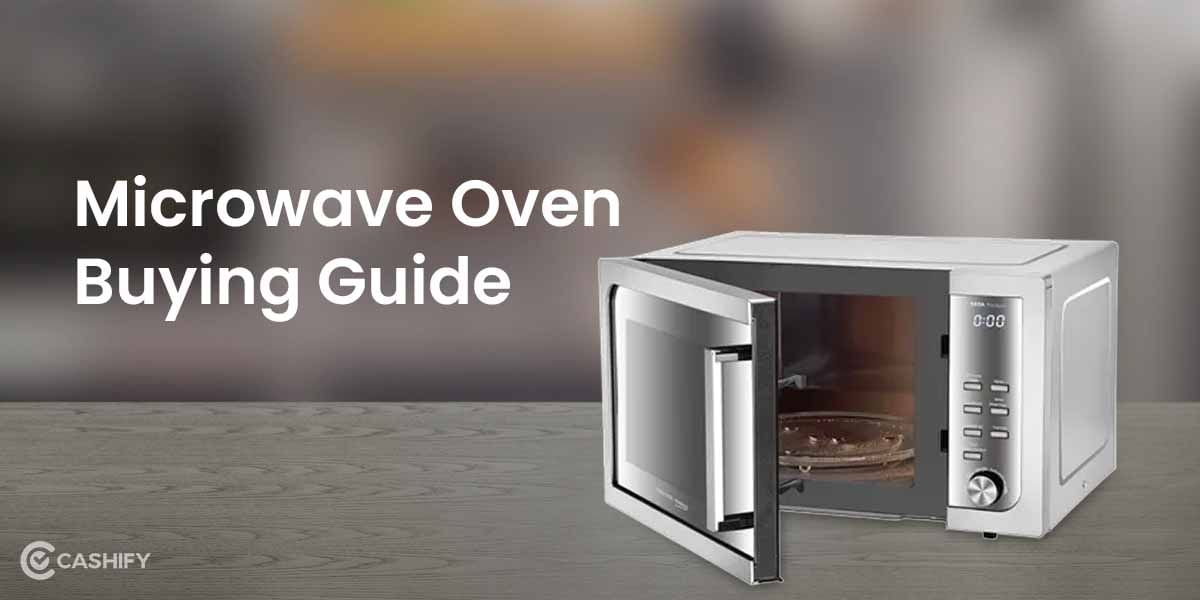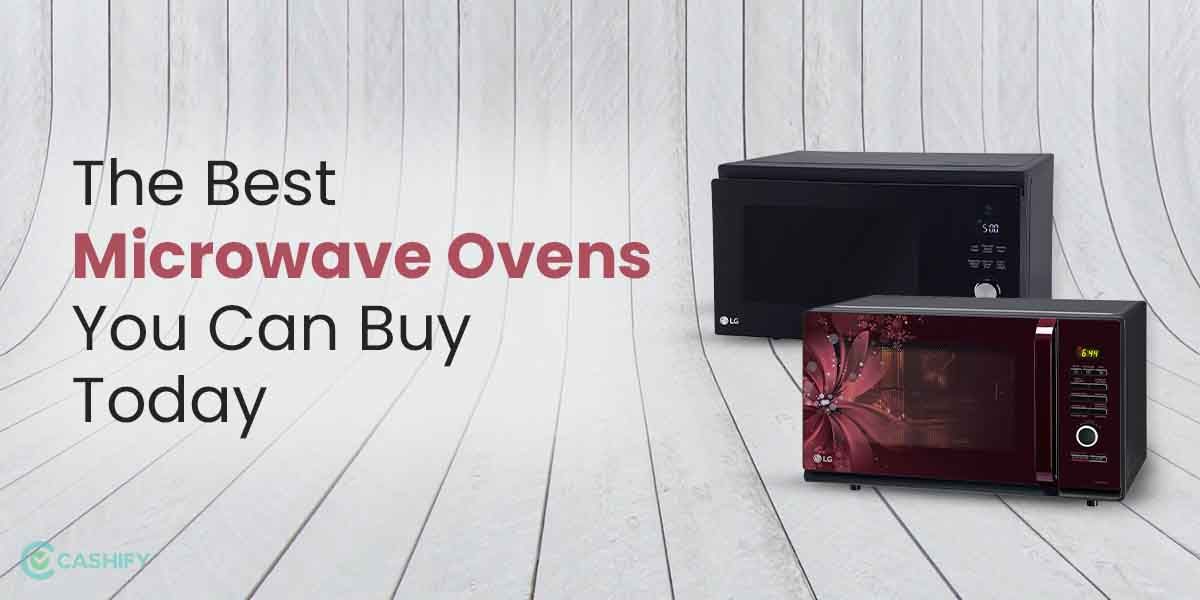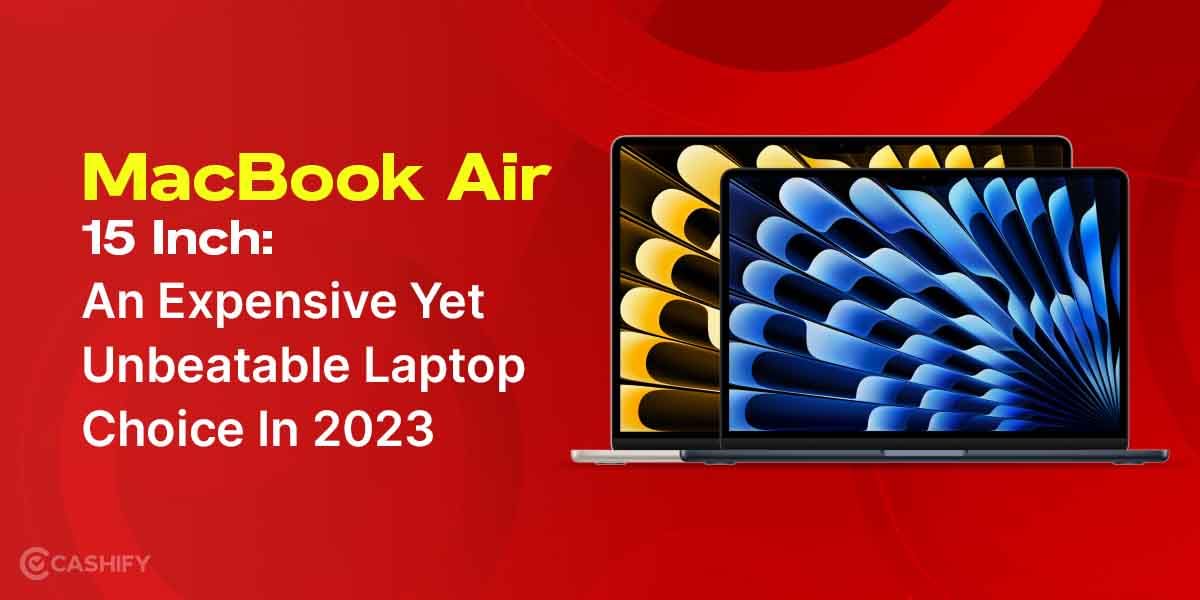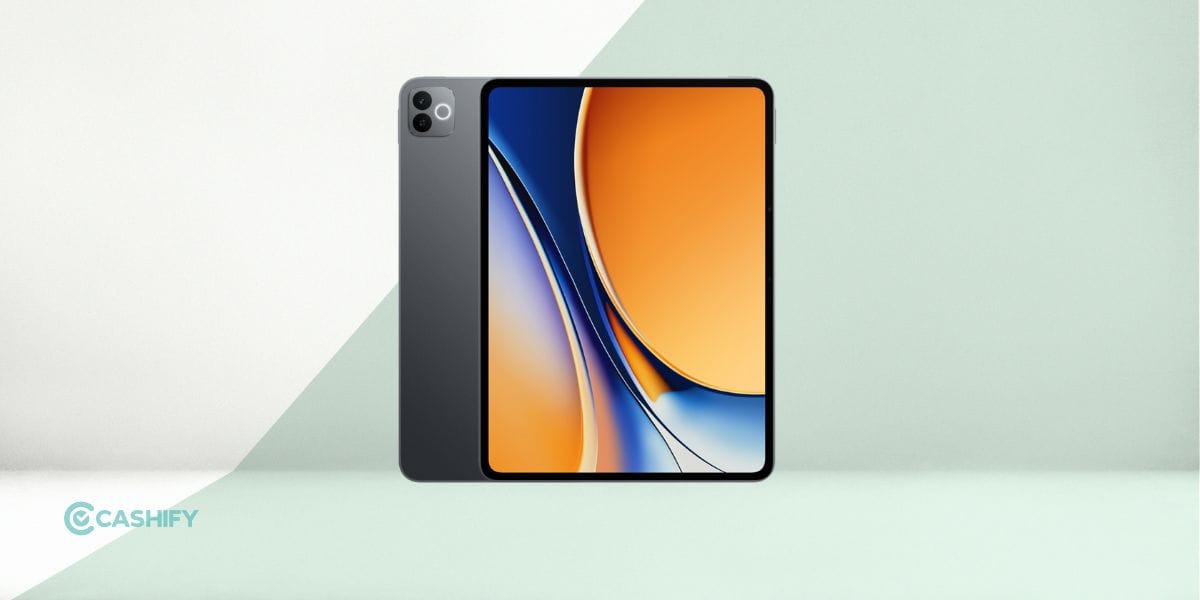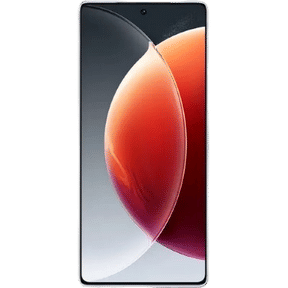Investing in a kitchen appliance doesn’t involve just comparing prices, brands, and models. You also need to understand the functioning of the appliance so you can buy one that suits your needs. It is very much the same when it comes to microwave ovens. With terms like convection microwave oven, microwave, and OTG being popular, it can be difficult to make a choice without knowing what’s best for your requirements. So here is a handy guide to understanding what is a convection microwave oven and its essential features.
Also Read: Microwave Oven Buying Guide
What is a Convection Microwave Oven?
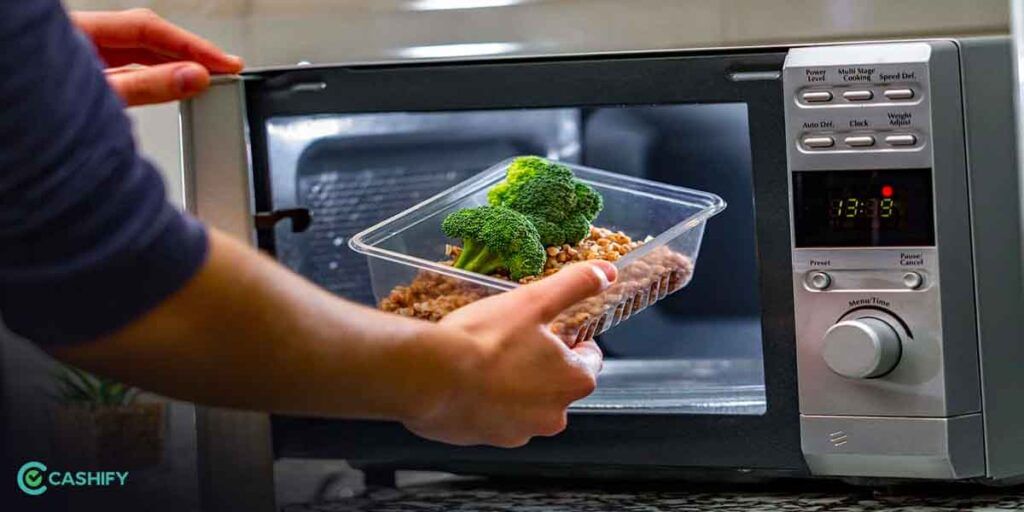
A convection microwave combines some of the features of two kitchen appliances – a microwave and a convection oven, allowing you to bake and roast foods in addition to heating them. Thanks to their versatility and small size, convection microwaves can be a good choice for every household
How does a Convection Microwave Oven work?
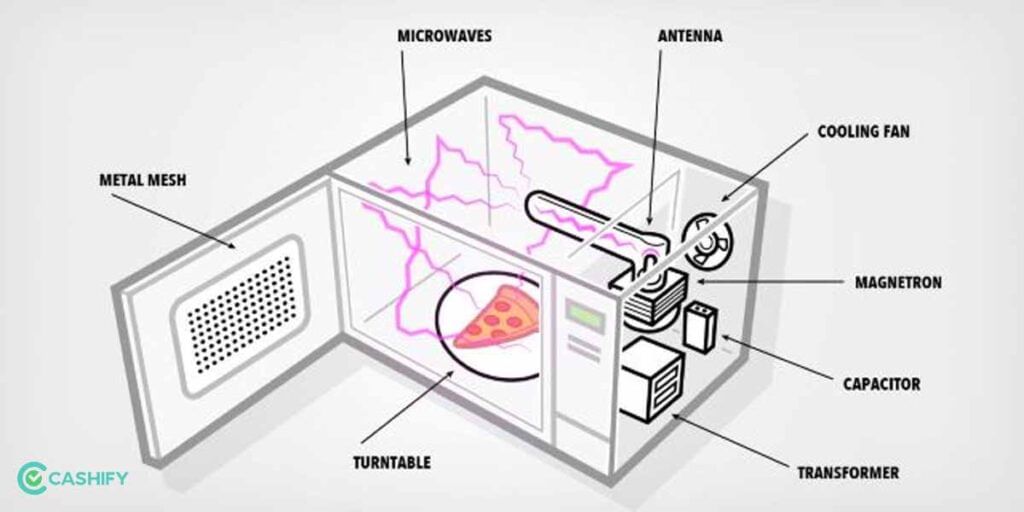
Any microwave can thaw frozen meals, melt butter, and reheat leftovers. An additional heating element and fan move hot air around the cavity of a convection microwave oven, allowing you to bake and roast food with results akin to those of a traditional oven. As the convection element and microwave cook simultaneously, you can anticipate speedier cooking times for some foods. Additionally, convection microwaves come with racks that allow you to microwave several meals at once. One should upgrade to a convection microwave to be able to roast, bake, cook, and crisp food.
Also Read: A Complete Guide Buying Guide For Washing Machine
How to use a Convection Microwave Oven
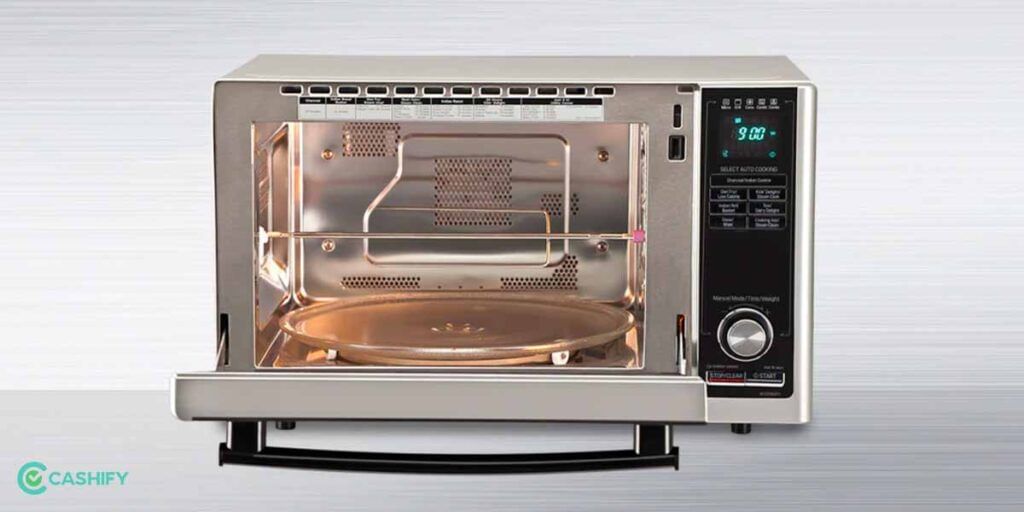
The kind of food you’re cooking in a convection microwave affects how well it turns out. Generally speaking, it’s best to stick to these fundamental rules:
- For quick cook times for reheating, use the microwave option. This includes prepared meals, popcorn, steamed or reheated veggies, leftovers, and so on.
- When cooking food in the microwave for a prolonged amount of time, use the convection mode. Examples include pizza, baked products, roasted meats and vegetables, and other foods that need to be browned or crisped.
- Use the combination setting on your convection microwave to cook food more quickly and get a crispy crust. Watch your meal carefully to prevent burning or overcooking.
- Utilize the circular convection rack and bakeware with low sides that come with your convection microwave to ensure optimal airflow.
- Only use the convection setting with metal objects. Never use metal objects in a combined or microwave setting.
Although most convection microwaves should function according to these instructions, keep in mind that each appliance is unique. Refer to the product manual for your particular model for further cooking advice to get the best results from your convection microwave oven.
Benefits of using a Convection Microwave Oven
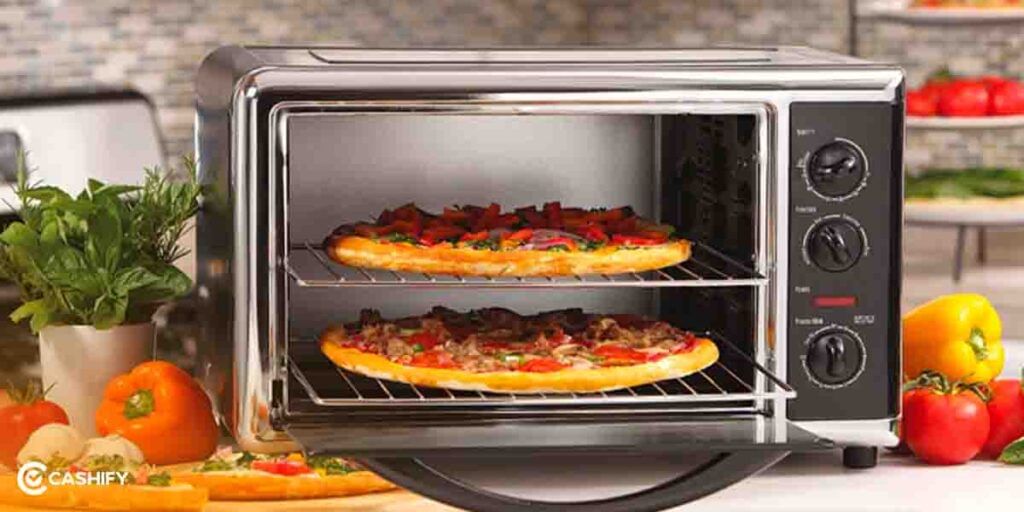
Microwave ovens only use electricity and not gas, charcoal or oil which eliminates pollution in the vicinity. Dangerous microorganisms have less time to thrive on food that is cooked in the microwave because the food is brought to a high temperature quickly and can be served right away.
Microwave ovens can reduce the amount of vitamins B, B1, C and E in foods. It can also damage the protein and amino acid contents in meats and reduce the food’s nutritional value. However, it is often better than boiling the same foods, which will remove even more of these nutrients because nutrients are lost through prolonged exposure to heat.
Energy usage rates by a microwave oven typically range between 750 watts and 1100 watts. This is higher than a refrigerator but lower than a clothes iron. The kilowatt-hour per unit usage ranks at about 200kWh, which is more than a colour TV. You can relax while cooking with a microwave oven just place the food inside, set the time, stir in between, if necessary, and take the food out once it is done.
Also read: Best Washing Machine Brands To Fight Tough Stains
Different working modes of Convection Microwave Oven
Let’s explore more details about the convection microwave oven in depth. Explore the settings, different modes, and uses.
In most convection microwave ovens, there are three cooking modes:
- Microwave only – timed food preparation
- Convection only – relying on the heating element to bake food
- Combined – both settings at the same time
The microwave setting isn’t different from the one in standard microwaves. Use it to defrost food, make perfect popcorn kernels in less than five minutes, reheat dinner leftovers, or steam vegetables. Comply with all the rules related to cooking in a microwave, such as avoiding metal cookware. Or you can cover your food with a best-quality microwave cover to keep the moisture so your food will not end up dry and tough.
If you want to bake food, set the convection oven at the convection setting. Install the rack and put the food in the middle of the chamber. Don’t forget to preheat the oven and turn the fan on for hot air circulation. Cooking food in a convection setting will result in a dish with a crispy exterior.
The third setting is combined and uses both microwaves and heating elements to cook the food. Because microwaves penetrate even the thickest food, they accelerate the cooking process. If you roast a whole chicken in a combined setting, you will end up with well-done chicken with crispy skin on the outside. The best part – you will roast the chicken in less time than if you used a standard oven.
Still, many people tend to overcook food in a convection oven. So always test food before you start cooking it in a combined setting.
Maintenance of Convection Microwave Oven
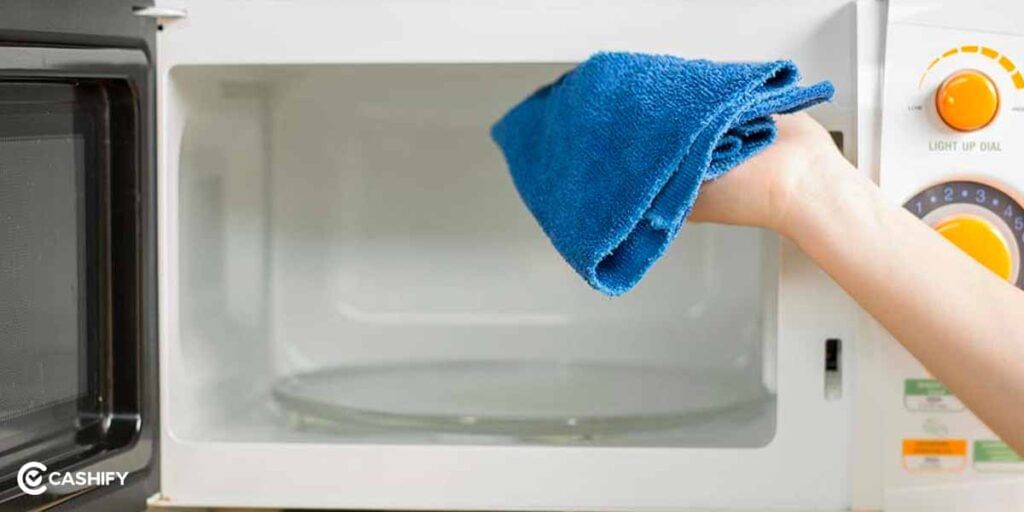
Cleaning a convection microwave oven isn’t different from cleaning a standard one with an additional step. The additional step is washing the rack you used for baking.
The easiest way to clean a convection microwave oven is using a trick with a glass of water. Put the microwave-safe glass with water inside the microwave chamber and cook it for three minutes. Don’t open the door for five more minutes and let the steam do the magic and clean every corner of the chamber.
After five minutes, use a paper towel to wipe-clean the microwave and remove any melted grease or food leftovers from baking. Wipe the inside of the microwave with a cloth dampened into the soapy water and rinse with a sponge dipped in fresh water.
When cleaning the exterior, wipe it clean with a soft cloth and avoid using soaps and cleaners around the control panel. Wash the rack in the sink using soap and water and install it back in the oven once dried.
Also Read: Gaming Laptop Buying Guide All You Need To Know
Who should consider a Convection Microwave?
So, now it is up to you to decide whether you should upgrade to a convection microwave oven or not. For most people, the answer depends on multiple factors. However, people with small kitchens may enjoy the versatility and space-saving aspects of a convection microwave. In addition, their convenience and speed are great assets if you’re frequently strapped for time.




